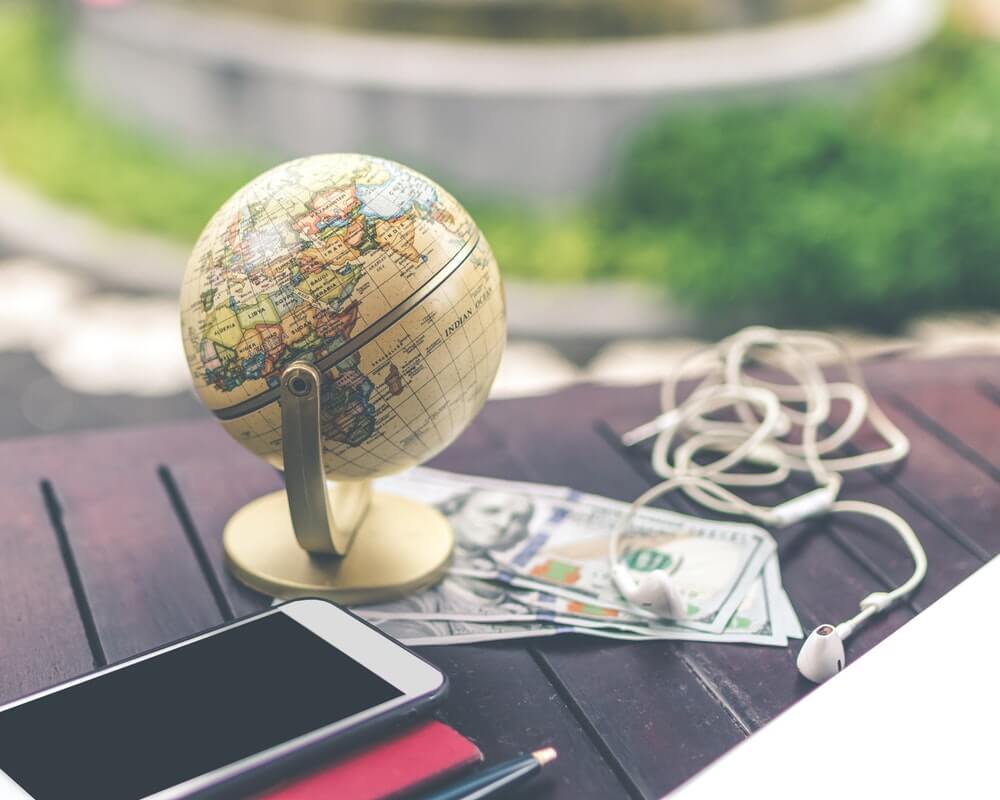If you're interested in living an adventurous life, hitting the open road, and seeing a bit of the world, it's probably a good idea to figure out a few basic and effective strategies for actually getting by in a foreign country.
These days, more of us than ever before are booking flights to exotic distant locales, or strolling around ancient and world-famous cultural capitals, and are collecting the Instagram photos to prove it.
Due to the ever-increasing rate of tourism to certain locations, it's often the case that tourists can make themselves understood, and get by, in all sorts of places that aren't their home country, without too much trouble.

But, just because things might work out pretty well on their own most of the time, doesn't mean that they always will. And, suffice to say, no one wants to be in a situation where they are stranded in a foreign country, have some problem to deal with, and don't know how to get around or sort things out.
So, here are a few tips for getting by in a foreign country.
Learn a few relevant local phrases, and check up the pronunciation beforehand.
Whatever country you are going to visit, the first thing you should do is to learn a few relevant local phrases – and, ideally to take a phrasebook with you, as well.
In addition to actually knowing the phrases, you should also try and ensure that you know how to pronounce them properly. Because, it's not going to do you much good if you are roaming around babbling incoherently at people, because you've misunderstood the phonetics of their language.

With technology being so potent and ubiquitous these days, it might seem pretty tempting to just rely on your phone and Google translate to get by. All right, but then what happens if you don't have an Internet connection, or your battery dies? Best to always have a physical phrasebook with you, as well.
So, what can phrases should you learn? Well, if you are going to visit Indonesia and are looking for accommodation, knowing search terms such as rumah dijual di Depok might be useful if you're planning to go anywhere around Depok. So might the option for any other cities.
And it never hurts to know how to ask where the bank is, or what the price of something is.
Make your own phrase list, and keep it with you.
Do your research beforehand, so you know where you're trying to go, what to expect, and which areas to avoid.
Tourists are often the number one prey of street criminals, partly because they're likely to be carrying a significant amount of money with them, but also because they simply lack the street smarts and cultural awareness that would help to keep locals safe from exploitation.
Your phrasebook isn't going to do a lot of good when it comes to keeping you out of a bad part of town or preventing you from being scammed. The way you protect yourself from being in that situation, is to do ample research beforehand, and know what you're getting into.
The Internet is an amazing tool, and a quick web search should tell you which parts of a city or province to visit, which ones to avoid, and which bars or restaurants are good and receptive to foreign visitors.
In fact, it's a good idea – Internet connection allowing – to search the web for reviews for each restaurant and shop you're considering going into, before you actually do enter them.

If possible, travel in a group.
Generally speaking, there is strength in numbers, and people who travel in a group with their friends are less likely to fall prey to petty crime or exploitation when overseas.
Aside from just being more protected against street crime, however, traveling in a group also allows you to benefit from several heads, instead of one, when figuring out what to do, where to go, and how to resolve particular issues.
When you're traveling in a group, you also have moral support, and people to have a good conversation with.
Unless you're really all in for the “pioneering adventure travel experience,” it's probably best to save solo trips for locations you already know quite well and are comfortable in, and to try and do your more “cutting-edge” travel with a group – whether they be friends or family.
Of course, if any of the members of your group happen to have some experience with the culture of the area you are visiting, or even a basic understanding of the language, that's likely to be a significant advantage as well.








